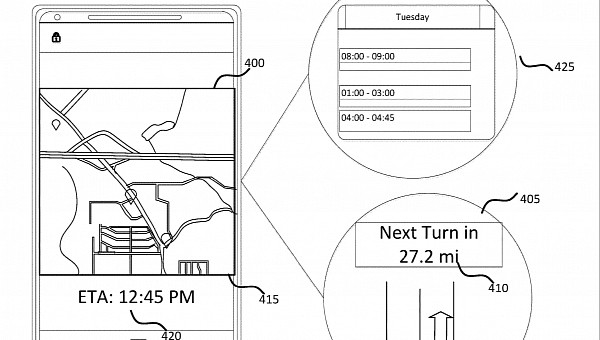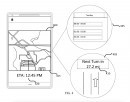Google is working on all kinds of new-generation capabilities for Google Maps, and AI and machine learning seem to play a major role in the long-term future of the application.
One of the ideas that the search giant is currently exploring is improving Google Maps with new technology that would allow the navigation software to automatically suggest points of interest based on users’ agenda.
The concept is pretty clever, and here’s precisely how it’s supposed to work.
Based on information received by the user, including their main interests, but also with the help of machine learning and past activity, Google Maps can build a profile for each user and create a database of POIs where they would like to go.
Then, users can also provide Google Maps with information on their appointments (or the application can import this data automatically if it’s provided with access to the calendar) and know precisely when and where they need to be every day. Not only the navigation is therefore planned in advance to make sure the user arrives at the destination on time, but depending on the traffic conditions, Google Maps can then suggest points of interest that fit their profiles.
These suggestions would be made based on the available time, so for instance, if Google Maps figures out that you’re arriving 30 minutes early to your next meeting, the app can look for nearby coffee places and get you there. The user can be provided with estimates and notifications to know precisely when they need to leave to be on time for the meeting.
Google Maps would continuously monitor the timeframe, the traffic conditions, and other information to make sure the detour wouldn’t cause the user to be late. Only relevant POIs would be suggested, with the tech giant explaining that all places would have to be located within a predetermined range. This way, Google Maps tries to prevent the ridiculous suggestions that would send users to another city to get a coffee, so the whole system was developed from the very beginning to avoid detours as much as possible.
The idea is described by Google in a patent called “content delivery in real-time guided navigation” and filed in December. Of course, given it’s still a patent, there’s no guarantee that such a feature would ever make its way to Google Maps, but it at least provides us with a closer look at where Google sees its navigation application in the long term.
AI and machine learning will play a more important role in the way Google Maps provides navigation, not only on mobile devices but also in cars powered by Android Automotive. The latter is where Google has a major opportunity to expand Google Maps with new-generation capabilities, especially because it has access to vehicle information, including battery range, location, and data read by sensors.
The concept is pretty clever, and here’s precisely how it’s supposed to work.
Based on information received by the user, including their main interests, but also with the help of machine learning and past activity, Google Maps can build a profile for each user and create a database of POIs where they would like to go.
Then, users can also provide Google Maps with information on their appointments (or the application can import this data automatically if it’s provided with access to the calendar) and know precisely when and where they need to be every day. Not only the navigation is therefore planned in advance to make sure the user arrives at the destination on time, but depending on the traffic conditions, Google Maps can then suggest points of interest that fit their profiles.
These suggestions would be made based on the available time, so for instance, if Google Maps figures out that you’re arriving 30 minutes early to your next meeting, the app can look for nearby coffee places and get you there. The user can be provided with estimates and notifications to know precisely when they need to leave to be on time for the meeting.
Google Maps would continuously monitor the timeframe, the traffic conditions, and other information to make sure the detour wouldn’t cause the user to be late. Only relevant POIs would be suggested, with the tech giant explaining that all places would have to be located within a predetermined range. This way, Google Maps tries to prevent the ridiculous suggestions that would send users to another city to get a coffee, so the whole system was developed from the very beginning to avoid detours as much as possible.
The idea is described by Google in a patent called “content delivery in real-time guided navigation” and filed in December. Of course, given it’s still a patent, there’s no guarantee that such a feature would ever make its way to Google Maps, but it at least provides us with a closer look at where Google sees its navigation application in the long term.
AI and machine learning will play a more important role in the way Google Maps provides navigation, not only on mobile devices but also in cars powered by Android Automotive. The latter is where Google has a major opportunity to expand Google Maps with new-generation capabilities, especially because it has access to vehicle information, including battery range, location, and data read by sensors.






